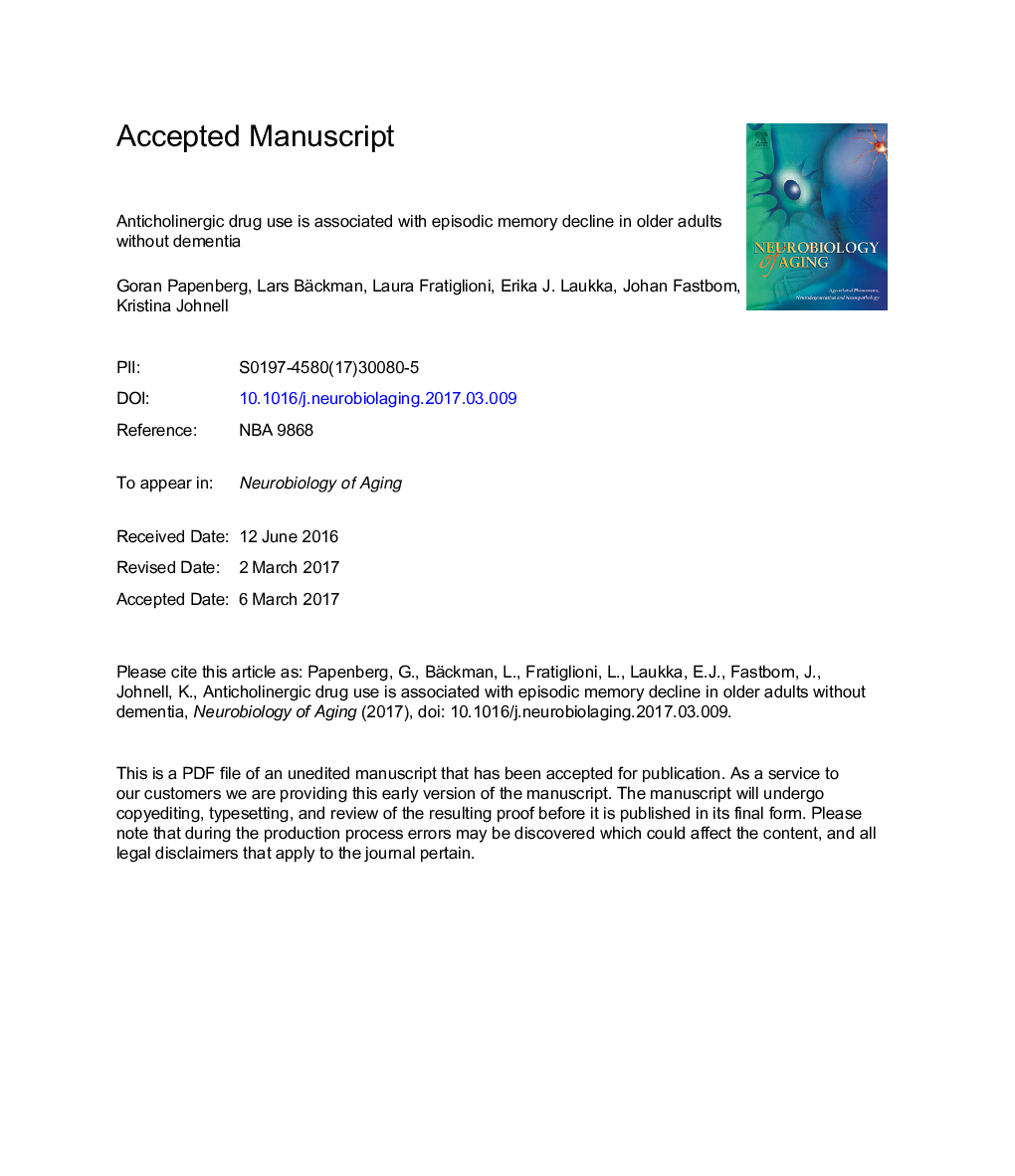| Article ID | Journal | Published Year | Pages | File Type |
|---|---|---|---|---|
| 4932802 | Neurobiology of Aging | 2017 | 24 Pages |
Abstract
Anticholinergic drug use is common in older adults and has been related to increased dementia risk. This suggests that users of these drugs may experience accelerated cognitive decline. So far, however, longitudinal data on this topic are absent and the available evidence is inconclusive with respect to effects on specific cognitive domains due to suboptimal control of confounding variables. We investigated whether anticholinergic medication use is associated with cognitive decline over 6 years in a population-based study of older adults (aged 60-90; n = 1473) without dementia. We found that users (n = 29) declined more on episodic memory over 6 years compared to nonusers (n = 1418). These results were independent of age, sex, education, overall drug intake, physical activity, depression, cardiovascular risk burden, and cardiovascular disease. By contrast, anticholinergic drug use was unrelated to performance in processing speed, semantic memory, short-term memory, verbal fluency, and global cognition (the Mini-Mental-State Examination). Our results suggest that effects of anticholinergics may be particularly detrimental to episodic memory in older adults, which supports the assertion that the cholinergic system plays an important role in episodic memory formation.
Related Topics
Life Sciences
Biochemistry, Genetics and Molecular Biology
Ageing
Authors
Goran Papenberg, Lars Bäckman, Laura Fratiglioni, Erika J. Laukka, Johan Fastbom, Kristina Johnell,
